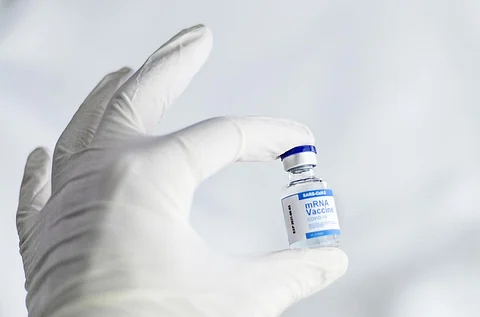

India will soon follow the United Kingdom’s footsteps and get a new bivalent vaccine for COVID-19. However, the scientific community is sceptical of the need and efficacy of an upgraded vaccine, considering the country’s public health approach.
A bivalent COVID-19 vaccine will target two coronavirus variants. The UK became the first country to approve the bivalent COVID-19 booster vaccine August 15, 2022. Serum Institute of India’s (SII) Chief Executive Adar Poonawalla also announced an Omicron-specific vaccine in India in six months.
According to the UK government, the upgraded version of the vaccine targets the original virus strain from 2020 as well as Omicron.
The bivalent vaccine will be developed using Omicron as it is the most predominant strain at present, said Amitav Banerjee, professor and head of community medicine at DY Patil Medical College in Pune.
“The new vaccine seems better in theory, as it is derived from the earlier COVID strain and the mutated version. But understanding the large-scale impact is important,” he said. It is difficult to understand how the vaccine works, especially in people who have already been infected with SARS-CoV-2, the professor said.
The majority of the virus structure does not change despite mutations, Banerjee added. “Just 1-2 per cent of the protein spike changes in the virus strain while mutating,” he further said.
The vaccine should be checked on the virgin population, which is people not infected by COVID-19 till now, he added.
Omicron is less severe and does not necessarily cause hospitalisation, unlike its previous strains, claimed the professor. “No vaccine can promise full protection. It is time to evaluate repercussions and think about health economics as it involves spending taxpayers’ money,” Banerjee said.
The public health perspective of India is different compared with other countries, said Naveen Thacker, president-elect of the International Paediatric Association. The body works on improving child and adolescent health and rights worldwide.
“Since the beginning, the United States and the UK wanted to prevent Omicron from becoming a serious disease. However, the primary aim in India is to prevent and safeguard the people from hospitalisation of deaths and not overburden the health infrastructure,” he said.
The question here to ask is whether India needs an Omicron-specific vaccine. The answer might be ‘no’, said Thacker. “The country is doing well with the vaccines we have at present,” he added.
However, the question remains whether the new vaccine will become redundant if newer coronavirus variants become more dominant. The efficacy of the new bivalent shots is better, so it would not become redundant, said Ghosh.
“How effectively vaccines work depends on several factors, like the number of people vaccinated and the time of dosage,” the senior advisor said. “It is too soon to predict its effectiveness before its usage on wide population due in September.”
The upgraded vaccine is planned as a booster dose for the adult population above 18 years of age in the UK, said Raj Shankar Ghosh, senior advisor for vaccine delivery at non-profit Bill & Melinda Gates Foundation.
“The new vaccine, Spikevax, is about 1.7 times more effective than the previous one. The efficacy does not seem drastically different, but it can provide better protection compared to earlier vaccines,” said Ghosh. How effective it is in the practical world is yet to be seen, he added.